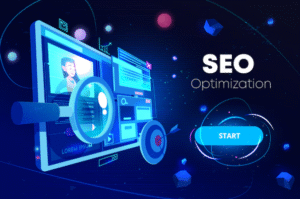The Role of AI in Product Development: How an AI Product Development Company Drives Innovation
Artificial Intelligence (AI) is no longer just a buzzword; it’s a groundbreaking force behind some of the most impressive innovations today. AI is reshaping the product development landscape from streamlining workflows to introducing smarter products. For product managers, tech innovators, and AI enthusiasts, understanding how AI transforms industries—and why partnering with an AI product development company matters—can unlock unprecedented growth.
This blog dives deep into the role of AI in product development, exploring the key stages, benefits, real-world applications, and future trends of leveraging AI to create world-class products. Read on to discover why AI could be the missing piece in your product development strategy.
Understanding AI-Driven Product Development
AI-driven product development refers to the integration of artificial intelligence technologies across the lifecycle of creating a product. By leveraging data, predictive analytics, and machine learning models, businesses can make faster, smarter, and more innovative decisions when designing and enhancing products.
For instance, AI is being used to predict demand, optimize prototypes, analyze customer feedback, and even brainstorm feature recommendations. Industries such as healthcare, automotive, finance, and manufacturing are utilizing AI to create products that are not just functional, but intelligent and adaptable.
Some key aspects of AI transformation include:
- Smarter Decisions Powered by Data
AI tools analyze vast datasets to identify trends, customer preferences, and potential improvements.
- Enhanced Efficiency
Automation reduces repetitive tasks like testing, leaving room for more creative and strategic development.
- Improved User Experience
AI predicts customer needs and provides solutions that fit those needs seamlessly.
Key Stages in AI Product Development
When it comes to building products using AI, there are three fundamental stages that an AI product development company follows:
1. Data Collection and Preparation
AI thrives on data. The first step in creating an AI-powered product is collecting relevant data—structured or unstructured—about processes, user behavior, or even industry trends. Additionally, data cleansing and preprocessing ensure errors, duplicates, or inaccuracies are eliminated for higher-quality AI output.
2. Model Training
The backbone of AI functionality is model training. Machine learning models are trained to understand the data and recognize patterns using algorithms. This step is crucial to empower the product to make autonomous decisions or deliver adaptive feedback based on user interactions.
3. Deployment and Maintenance
Once trained, AI models are deployed into the product. This is when the AI component begins functioning in real-time, such as offering recommendations, automating a task, or detecting errors in design. Regular updates and retraining are often required to ensure the accuracy and efficiency of the AI system.
These stages showcase how adopting AI isn’t just about embedding algorithms—it’s about creating an infrastructure that evolves with user needs.
Benefits of Partnering with an AI Product Development Company
Working with a professional AI product development company can make all the difference in driving innovation. By tapping into their expertise and resources, businesses can experience the following benefits:
1. Faster Innovation Cycles
AI tools speed up the processes of design, testing, and troubleshooting through automation. Prototyping and product iterations that once took weeks can now be executed in mere hours.
2. Cost Savings
By automating manual and repetitive tasks like quality testing or error detection, AI eliminates unnecessary costs, allowing your team to focus on creative and strategic aspects of development.
3. Custom Solutions for Your Industry
A specialized AI product development company can tailor their approach to meet the unique challenges and opportunities within your industry. For example, combining AI with custom PCB design services could empower tech companies to create durable, smart circuit boards for IoT devices.
4. Operational Automation
AI makes it easy to integrate automation into your workflows, ensuring consistency and reducing inefficiencies. From production schedules to customer service, AI introduces scalability to every aspect of your operations.
5. Expert Guidance
AI implementation involves complex layers, ranging from data architecture to algorithm design. Partnering with experts helps mitigate risks while optimizing results.
Real-World Use Cases of AI in Product Development
AI isn’t just theoretical—it’s already revolutionizing how products are built, marketed, and used across industries. Here are a few standout examples of how companies are using AI today:
Healthcare
Companies are using AI to develop diagnostic tools, wearable health trackers, and drug discovery platforms. By analyzing patient data, AI solutions can predict outcomes or recommend preventative treatments.
Finance
AI algorithms help prevent financial fraud, assess creditworthiness, and provide personalized investment recommendations. Products powered by AI in finance improve both decision-making and security.
Manufacturing
AI tools are monitoring production lines, predicting equipment failures, and enhancing precision in high-tech manufacturing. Innovations like predictive maintenance are minimizing downtime while keeping operations efficient.
Whether it’s creating lifesaving technology or automating assembly lines, AI has become a vital tool for creating extraordinary products across industries.
Challenges and Future Trends in AI-Driven Product Development
Certainly, adopting AI comes with challenges—but these hurdles are surmountable, and the upside is enormous.
Challenges
- Ethical AI Concerns
Misuse or bias in AI must be addressed through transparent design and ethical implementation processes.
- Data Privacy Issues
The use of extensive datasets raises questions about user privacy and data security. This is why robust data encryption and user consent protocols are crucial.
- Scaling AI Solutions
It can be difficult for businesses to scale AI solutions across large, complex operations. A gradual approach to implementation is often helpful here.
Future Trends
- Explainable AI
Businesses are demanding AI systems that can explain their outputs—making decision-making processes transparent to human users.
- AI Collaboration
AI will not replace human teams but work alongside them to enhance creativity, strategy, and problem-solving.
- AI-Powered Hardware
Embedded AI, such as autonomous manufacturing tools or custom PCBs, will drive both operational excellence and product differentiation.
Investing in AI technology not only addresses current challenges but also positions your business for future growth in a competitive market.
Why Businesses Should Invest in AI-Driven Solutions
AI is no longer an optional tool—it’s a necessity. From reshaping product innovation cycles to improving cost efficiency, AI offers countless benefits for organizations looking to stay ahead of the curve.
If you’re ready to harness the power of AI but unsure of where to begin, starting with an AI product development company can help you create technology that meets both industry standards and customer expectations. Whether it’s a healthcare diagnostic tech or a PCB design-enhanced IoT solution, AI has the potential to revolutionize your product line.
The question isn’t “if” AI will impact product development—it’s how quickly you can adapt to leverage its full potential.








